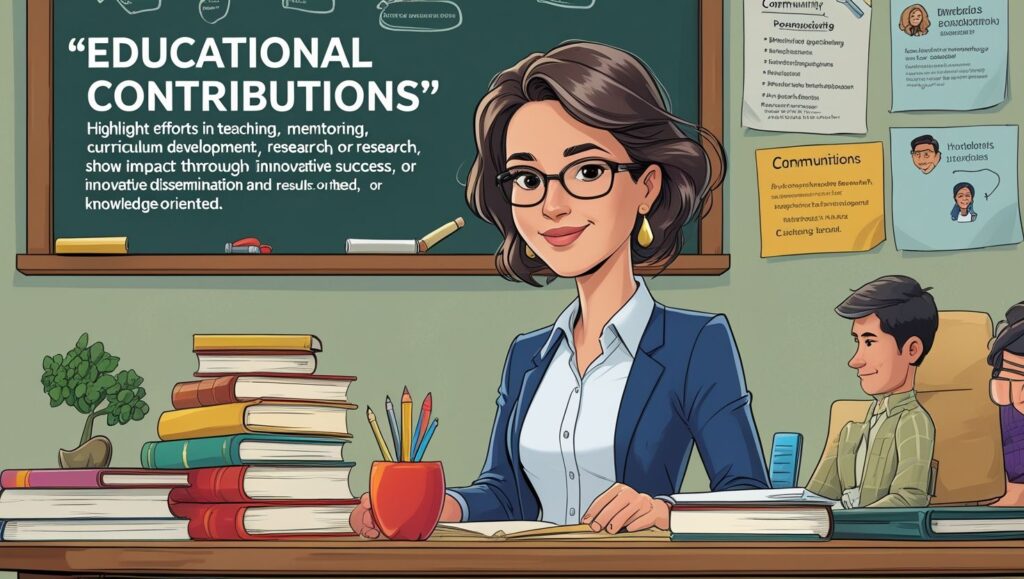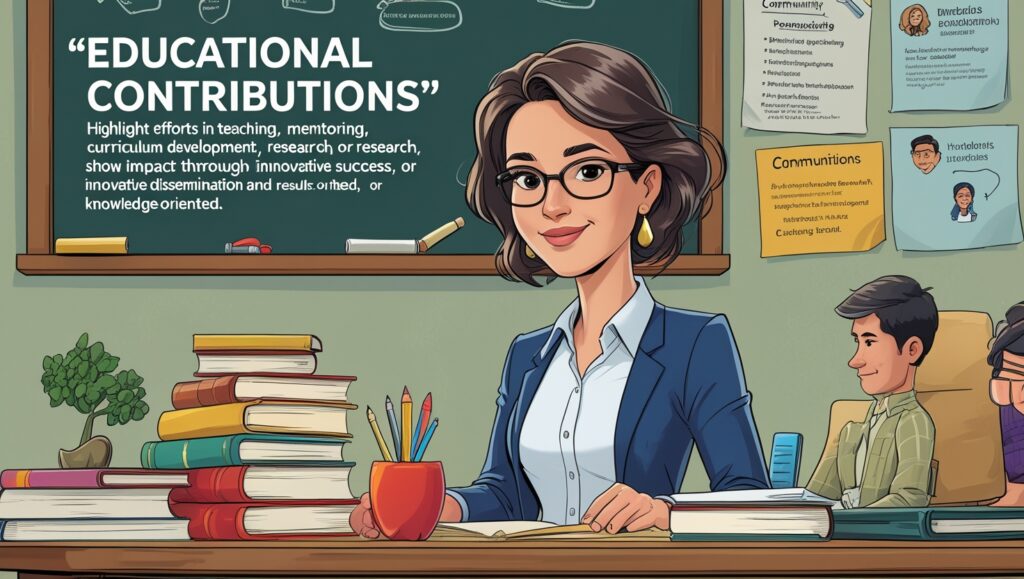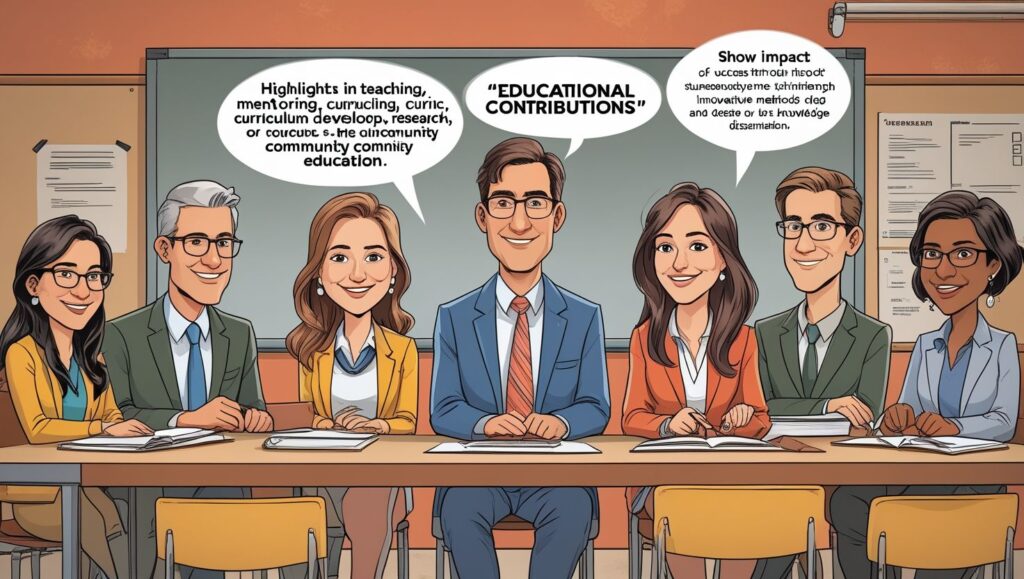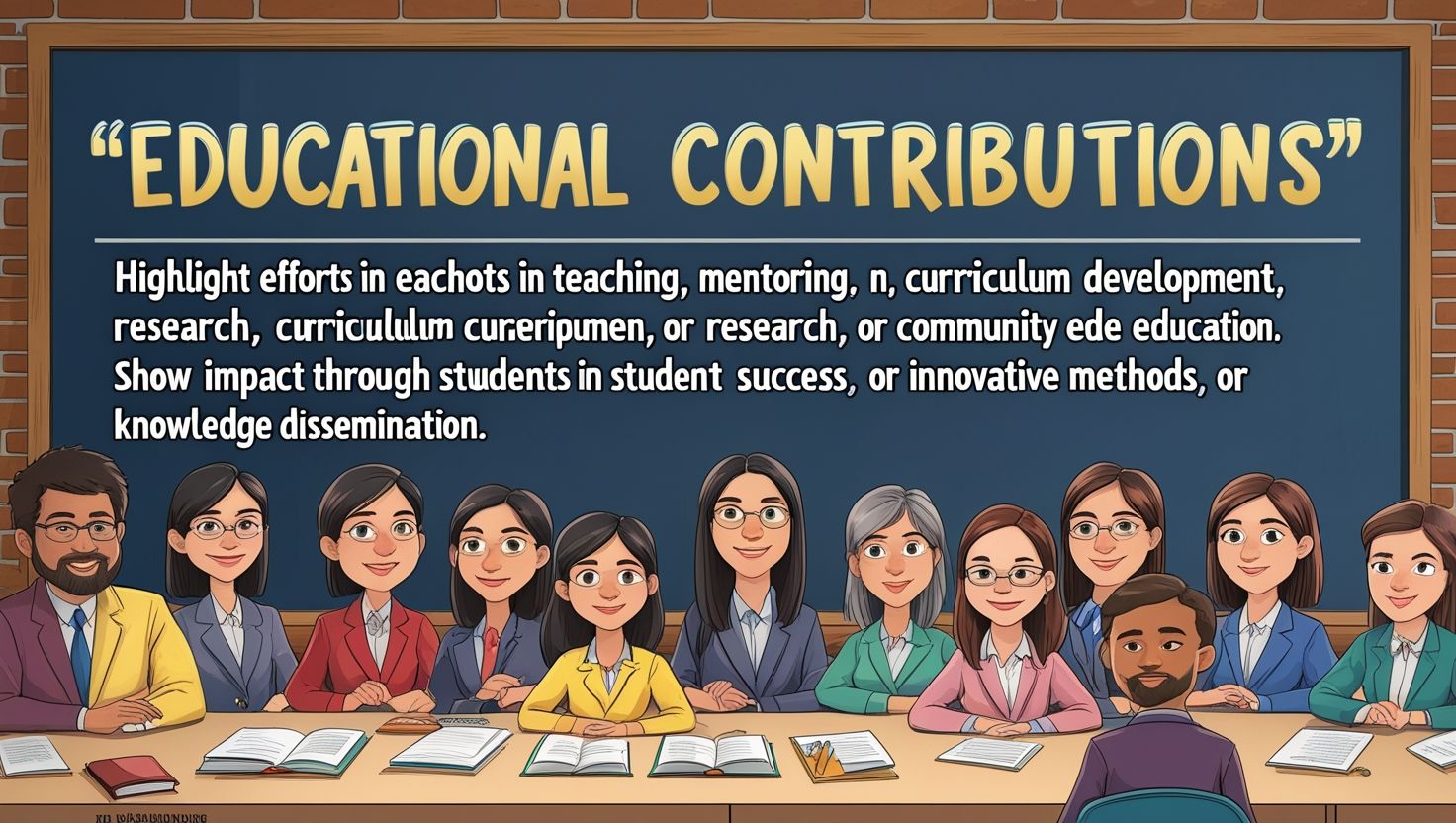Introduction
Educational contributions can take many forms. Every day, individuals influence education in meaningful ways. These efforts may be small, such as guiding a child at home, or large, such as designing a national curriculum. Together, they shape how students learn, grow, and prepare for the future. Importantly, these contributions go beyond classrooms. They extend into communities, policies, and even global initiatives. Their purpose is not only to transfer knowledge but also to foster personal development, social responsibility, and innovation.
Education is a shared responsibility. Teachers, parents, policymakers, and learners all have roles to play. Each action, when consistent, adds value to the learning process. For example, a teacher who encourages creativity can inspire lifelong curiosity. Similarly, a parent who supports reading at home can strengthen literacy. Moreover, society benefits when education empowers individuals to solve problems and contribute productively.
Therefore, educational contributions are both personal and collective. They ensure that learning is dynamic, inclusive, and forward-looking. In the following sections, we explore key areas where individuals make daily contributions to education. Each area highlights how dedication and effort help students succeed and societies progress.
Teaching and Instruction
Teaching is one of the most direct and visible contributions to education. Teachers engage students daily by delivering lessons, asking questions, and providing clear explanations. Good instruction is not just about sharing facts. It is about making learning engaging, understandable, and relevant. When teachers prepare lessons carefully, they connect new knowledge with students’ lives. This makes learning meaningful and memorable.
Furthermore, teaching goes beyond the classroom content. A teacher also models discipline, respect, and responsibility. Students often look to teachers for guidance, encouragement, and support. Feedback is another powerful tool. When teachers give timely and constructive feedback, they help students improve and build confidence. Moreover, teachers adapt their methods to different learning styles. Some students learn best visually, while others need hands-on activities or discussions. A skilled teacher balances these approaches to reach everyone.
In addition, teaching creates safe spaces where students feel valued. Classrooms that are positive and inclusive encourage participation. As a result, students develop curiosity and resilience. Therefore, teaching and instruction are at the heart of educational contributions. They provide the foundation upon which all other contributions build.

Mentoring and Coaching
Mentoring and coaching extend the teacher’s role into deeper, personal support. While teaching focuses on content, mentoring focuses on growth. A mentor provides guidance, encouragement, and advice tailored to individual needs. For students, this relationship can be life-changing. A mentor listens, motivates, and helps learners navigate challenges.
Coaching also applies to professional settings. Experienced educators often coach new teachers, sharing strategies and experiences. This builds confidence and reduces stress for those just beginning their careers. Coaching may also involve setting goals, observing teaching practices, and offering constructive feedback. Through this process, both mentor and mentee grow.
Furthermore, mentoring develops leadership qualities. Students and educators who receive mentoring often become mentors themselves. This creates a cycle of support and collaboration within schools. Additionally, mentoring extends beyond academics. It can include emotional support, career guidance, and personal development.
Mentoring and coaching strengthen relationships within the educational community. They encourage trust, communication, and mutual respect. Most importantly, they ensure that learning is not just about knowledge but also about personal growth and resilience. Thus, mentoring and coaching make education more humane and supportive.
Curriculum Development
Curriculum development is another crucial contribution. It ensures that what students learn is relevant, comprehensive, and up-to-date. A curriculum is more than a list of subjects. It is a plan that reflects national goals, societal needs, and future skills. Educational leaders and specialists carefully design it to guide teaching and learning.
After thorough research, they align curricula with educational standards. This ensures consistency across schools. Furthermore, they adapt content to meet the needs of diverse learners. For example, including practical projects helps students apply knowledge. Likewise, integrating technology prepares them for the digital age.
Curriculum developers also incorporate values such as respect, responsibility, and teamwork. This ensures that education is holistic. In addition, they review curricula regularly to remain current with scientific, cultural, and economic changes. For example, environmental studies and digital literacy are now essential.
When done well, curriculum development bridges theory and practice. It provides teachers with structure while allowing flexibility. Moreover, it ensures that students not only gain academic knowledge but also develop life skills. Therefore, curriculum development is a powerful contribution that shapes the direction of education for generations.
Research and Scholarship
Research and scholarship expand the boundaries of education. Scholars and researchers investigate how students learn, what methods are effective, and how systems can improve. Their findings guide educators and policymakers in making informed decisions. For instance, studies in educational psychology reveal how motivation affects performance.
Furthermore, researchers publish their work in journals, books, and reports. This knowledge spreads globally, allowing educators everywhere to learn and adapt. Research also examines social issues, such as inequality in education. By highlighting problems, it inspires solutions.
Scholarship contributes to innovation. New teaching methodologies, digital tools, and assessment techniques often emerge from academic research. Moreover, research ensures accountability. It evaluates whether policies and programs achieve their goals.
In addition, research fosters collaboration between universities, schools, and communities. Such partnerships strengthen the link between theory and practice. Importantly, scholarship encourages critical thinking among educators. It pushes them to question existing systems and explore new possibilities.
Therefore, research and scholarship are vital contributions. They ensure that education evolves with society and remains relevant. Without research, education risks stagnation. With it, schools and systems continuously grow and improve.

Professional Development
Professional development is essential for educators to remain effective. Education is always changing, and teachers must keep up with new methods, tools, and ideas. Workshops, seminars, and training programs provide opportunities for growth. These events allow teachers to learn from experts and share experiences with peers.
Furthermore, professional development improves confidence. When teachers acquire new skills, they feel more prepared for classroom challenges. For example, training in digital tools helps them integrate technology effectively. Similarly, workshops on inclusive teaching strategies prepare them to meet diverse student needs.
Professional development also builds networks. Educators connect with colleagues across regions, exchanging ideas and resources. These connections foster collaboration and innovation. In addition, continuous training supports career advancement. Teachers can specialize, take leadership roles, or contribute to curriculum development.
Importantly, professional development shows commitment. It reflects the dedication of educators to lifelong learning. As a result, students benefit from updated, dynamic, and engaging lessons. Schools that invest in teacher growth create stronger learning environments.
Thus, professional development is more than training. It is an ongoing process that sustains the quality of education and keeps it relevant to changing times.
Advocacy and Policy
Advocacy and policy shape education at a broader level. Advocates raise awareness about issues such as equity, access, and quality. They speak for students, teachers, and communities whose voices may not be heard. Policymakers then translate these concerns into laws and regulations.
For example, advocacy campaigns may push for free primary education. Policymakers respond by creating frameworks and budgets to make it possible. Similarly, advocates highlight the needs of marginalized groups. Policies then ensure that these groups receive fair opportunities.
Furthermore, advocacy influences global agendas. International organizations often work with local groups to promote education as a human right. Policymakers, in turn, align national goals with these commitments.
Effective policies set standards for curricula, teacher training, and school infrastructure. They also provide resources for research, technology, and professional development. Importantly, advocacy keeps policymakers accountable. It ensures that promises become actions.
Therefore, advocacy and policy together form a critical contribution. They create systems that are inclusive, fair, and sustainable. Without them, education would lack structure and direction. With them, schools and communities gain stronger foundations for success.
Parent and Community Engagement
Parents and communities play vital roles in education. Learning does not stop at the school gate. When families support education, children perform better. Simple actions, such as helping with homework or encouraging reading, build strong foundations.
Communities also contribute. Local organizations may provide resources, tutoring, or safe spaces for learning. Events such as cultural fairs and exhibitions connect students to their heritage. Moreover, strong school-community partnerships foster trust. Teachers feel supported, and students feel valued.
Engagement also helps schools understand student needs. Parents and community leaders bring valuable perspectives. They can highlight challenges such as poverty, language barriers, or health issues. Schools can then adapt programs accordingly.
Furthermore, parental involvement improves attendance and motivation. Students who see their families engaged in their learning are more likely to succeed. Communities also serve as role models. Local professionals may mentor students, showing them real-world opportunities.
Therefore, parent and community engagement enriches education. It ensures that schools are not isolated but part of a larger network. Together, they build supportive environments where students thrive academically and personally.

Technology Integration
Technology has become central to modern education. Integrating digital tools into classrooms enhances engagement and efficiency. Interactive boards, online platforms, and educational apps make lessons dynamic. They also allow personalized learning. Students can progress at their own pace, reviewing materials when needed.
Furthermore, technology connects students beyond their classrooms. Virtual classes link learners with teachers worldwide. Online resources provide access to vast libraries of information. This broadens perspectives and encourages independent learning.
Teachers also benefit from technology. It simplifies grading, lesson planning, and communication with parents. Importantly, technology supports inclusion. Students with disabilities can use assistive tools to access lessons.
However, successful integration requires training and resources. Teachers must know how to use digital tools effectively. Schools need reliable infrastructure. When these conditions are met, technology transforms learning.
Moreover, digital literacy is a critical skill in today’s world. By integrating technology, education prepares students for future careers. Thus, technology integration is not just an option. It is a necessity that ensures students are ready for the challenges of the digital age.
Cultural Competency and Inclusion
Cultural competency and inclusion ensure that education is fair and respectful. Classrooms today are diverse. Students come from different languages, traditions, and backgrounds. Teachers must create spaces where everyone feels valued.
Culturally responsive teaching acknowledges and respects these differences. It uses examples, stories, and materials that reflect all students. This helps learners feel seen and understood. Furthermore, inclusive curricula highlight multiple perspectives. They teach students to appreciate diversity.
Inclusion also extends to students with disabilities. Schools must provide support, accommodations, and accessible learning tools. Importantly, inclusion benefits everyone. It promotes empathy, collaboration, and social harmony.
Teachers who practice cultural competency reduce prejudice and misunderstanding. They encourage students to celebrate differences rather than fear them. Moreover, inclusive schools strengthen national unity. They show that diversity is a strength, not a weakness.
Therefore, cultural competency and inclusion are vital contributions. They ensure that education prepares students to live in respectful, global societies. By promoting belonging and fairness, education becomes a force for equality and peace.
Self-Reflection and Growth
Self-reflection is a personal but powerful contribution to education. Educators who reflect on their practice continuously improve. Reflection involves asking questions such as: What worked well today? What could I change? How did students respond?
Through reflection, teachers identify strengths and weaknesses. They set goals and experiment with new strategies. Over time, this process builds confidence and effectiveness. Reflection also fosters resilience. Teachers learn to adapt when challenges arise.
Furthermore, self-reflection models growth for students. When teachers show they are learners too, students see that learning never ends. Reflection also connects with professional development. By identifying needs, teachers seek appropriate training.
In addition, self-reflection supports well-being. Educators recognize stress, celebrate successes, and maintain balance. This makes them more effective in the classroom.
Ultimately, growth is both personal and collective. As teachers grow, so do their students and communities. Therefore, self-reflection is not just about individual improvement. It is about creating a culture of lifelong learning and adaptability in education.
Conclusion
Each contribution to education, whether large or small, has lasting impact. Teaching inspires curiosity. Mentoring supports personal growth. Curriculum development sets direction. Research provides knowledge. Professional development strengthens skills. Advocacy and policy create fairness. Parent and community engagement extend learning beyond classrooms. Technology integration prepares students for modern challenges. Cultural competency ensures belonging. Self-reflection nurtures growth.
Together, these contributions make education dynamic and meaningful. They show that education is not the work of one person alone. It is a shared effort involving teachers, families, policymakers, researchers, and students themselves. Importantly, every contribution adds value.
Therefore, advancing education requires dedication from all members of society. With consistent effort, education becomes more inclusive, effective, and transformative. It equips learners not only with skills but also with values and confidence. Ultimately, these contributions shape better futures for individuals and stronger foundations for societies.

d20qff
1c0sfy
qcry09
I appreciate, cause I found exactly what I was looking for. You have ended my four day long hunt! God Bless you man. Have a nice day. Bye
Informasi akses situs Sigma slot
My partner and I stumbled over here by a different web address and thought I might as well check things out. I like what I see so now i am following you. Look forward to exploring your web page for a second time.
I like this site so much, saved to bookmarks. “American soldiers must be turned into lambs and eating them is tolerated.” by Muammar Qaddafi.
When I initially commented I clicked the “Notify me when new comments are added” checkbox and now each time a comment is added I get three emails with the same comment. Is there any way you can remove me from that service? Appreciate it!
Hello there, I found your blog via Google while looking for a related topic, your website came up, it looks good. I have bookmarked it in my google bookmarks.
I’m still learning from you, as I’m trying to reach my goals. I absolutely love reading everything that is posted on your website.Keep the posts coming. I loved it!
I went over this web site and I believe you have a lot of superb info , saved to bookmarks (:.
After all, what a great site and informative posts, I will upload inbound link – bookmark this web site? Regards, Reader.
Awsome website! I am loving it!! Will come back again. I am bookmarking your feeds also.
hey there and thank you for your information – I’ve certainly picked up something new from right here. I did on the other hand expertise a few technical issues the usage of this website, since I skilled to reload the website lots of instances prior to I may just get it to load properly. I were considering in case your hosting is OK? Not that I am complaining, however sluggish loading instances occasions will sometimes impact your placement in google and can harm your high-quality rating if ads and ***********|advertising|advertising|advertising and *********** with Adwords. Well I’m including this RSS to my e-mail and could look out for a lot extra of your respective intriguing content. Make sure you update this again soon..
We absolutely love your blog and find many of your post’s to be just what I’m looking for. can you offer guest writers to write content for yourself? I wouldn’t mind producing a post or elaborating on some of the subjects you write concerning here. Again, awesome web site!